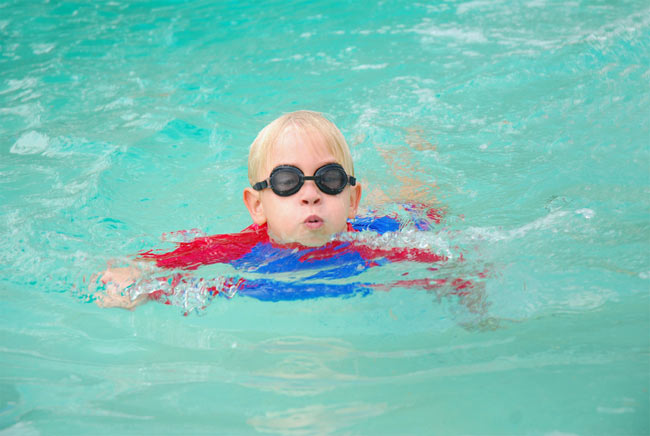Peeing in Pool Causes Surprising Health Hazard

Peeing in the pool not only has an ick factor, but also produces a surprising health hazard when urine combines with pool chemicals, a new study says.
The results show that uric acid, a compound in urine, combines with the chlorine used to disinfect pools to produce potentially hazardous compounds called "volatile disinfection byproducts."
One byproduct is cyanogen chloride, a compound that is known to be toxic to many human organs if it is inhaled. Another compound, trichloramine, has been linked with lung injuries from exposure to chlorine-based disinfectants.
Researchers knew that chlorine could react with urine, sweat and other organic matter to produce contaminants in swimming pools. But the new findings show definitively that uric acid is a precursor to cyanogen chloride and trichloramine, the researchers said. [7 Common Summer Health Concerns]
"Given that uric acid introduction to pools is attributable to urination, a voluntary action for most swimmers, these findings indicate important benefits to pool water and air chemistry that could result from improved hygiene habits on the part of swimmers," the researchers said.
"A common misconception within the swimming community is that urination in pools is an acceptable practice, although signs and placards are posted in many pools to encourage proper hygiene," said study researcher Ernest R, Blatchley III, a professor of civil engineering at Purdue University. "It is also well known that many swimmers ignore these warnings, particularly noteworthy among these are competitive swimmers," Blatchley said.
A 2010 study suggest that disinfection byproducts can cause genetic mutations when tested on cells in a lab dish.
Get the world’s most fascinating discoveries delivered straight to your inbox.
The new study was published in the February issue of the journal Environmental Science & Technology.
Follow Rachael Rettner @RachaelRettner. Follow Live Science @livescience, Facebook & Google+. Original article on Live Science.

Rachael is a Live Science contributor, and was a former channel editor and senior writer for Live Science between 2010 and 2022. She has a master's degree in journalism from New York University's Science, Health and Environmental Reporting Program. She also holds a B.S. in molecular biology and an M.S. in biology from the University of California, San Diego. Her work has appeared in Scienceline, The Washington Post and Scientific American.


